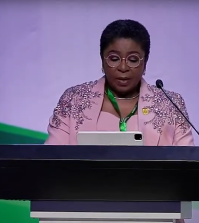New law to squeeze employment protections for US Veterans Affairs staff

A controversial bill that will allow the swift dismissal of staff at the US Department of Veteran Affairs (VA) is awaiting sign-off by president Donald Trump after receiving the backing of the House of Representatives yesterday.
There are fears that the passage of the Department of Veterans Affairs Accountability and Whistleblower Protection Act could open the door to further civil service reforms in the US and lead to reduced protections for federal employees.
The bill was introduced to address workforce management problems in America’s second largest federal agency, which supports the country’s military veterans. In 2014 it emerged that VA medical facilities around the country had covered up delays in providing care to veterans, but so far relatively little action has been taken against the parties involved in the scandal due, it is claimed, to excessive protection for agency staff.
The bill pledges to improve accountability in the department by giving it greater powers to remove any employee with only 15 days’ notice. The VA secretary will also have the ability to directly remove senior department staff, who will have their recourse to the so-called Merit Systems Protection Board withdrawn.
Furthermore, the new law limits the amount of time staff can be placed on paid administrative leave in the event of an investigation into their conduct, and incentivises managers to crack down on poor performance and misconduct.
Another key pillar of the bill is the creation of an ‘Office of Accountability and Whistleblower Protection’ at the VA, whose head will be directly appointed by the president.
A briefing note from Republican senator Johnny Isakson, chairman of the Senate Committee on Veteran Affairs and one of the main architects of the bill, described its aims thus: “When the U.S. Department of Veterans Affairs (VA) cannot hold bad actors accountable, everyone loses. Taxpayer dollars are wasted on employees who are not fully committed to helping our veterans. Other employees at the VA suffer because they are forced to work alongside or take direction from delinquent individuals. Most egregiously, our veterans suffer because the people responsible for caring for them are putting themselves first – not our veterans.”
The bill has already received the verbal backing of president Trump, who is now expected to sign it into law in the next few days.
But unions and employee groups have attacked the bill, claiming it will fail in its specific mission at the VA as well as opening the door to further erosion of employee protections.
Bill Valdez, president, Senior Executives Association, said: “Passage of this legislation can only serve to exacerbate VA’s workforce management challenges, further straining its ability to attract talent to over 45,000 vacant positions at the agency. As the Congress is well aware, the VA has struggled in recent years to fill critical positions due to systemic issues that have plagued the agency and created a toxic and unmanageable environment. Unfortunately, this legislation fails to address many of those issues.”
Meanwhile there are fears the legislation could provide US lawmakers with a template for a broader shake-up of federal job protections.
In a testimony to the VA committee last month, J. David Cox Sr., national president of the American Federation of Government Employees, said: “While the Senate bill only targets VA workers, its passage would open the door to eliminating due process rights for all federal employees and politicising the civil service.
“The importance of maintaining a nonpartisan, apolitical civil service in an increasingly partisan environment cannot be overstated,” Cox added. “Whatever lack of public confidence in government exists today will be magnified a hundredfold if all civil servants become de facto political appointees, serving at the whim of supervisors. And that is exactly what this horrible piece of legislation will do.”
For up to date government news and international best practice follow us on Twitter @globegov
See also:
US government department announces new chief information officer





















